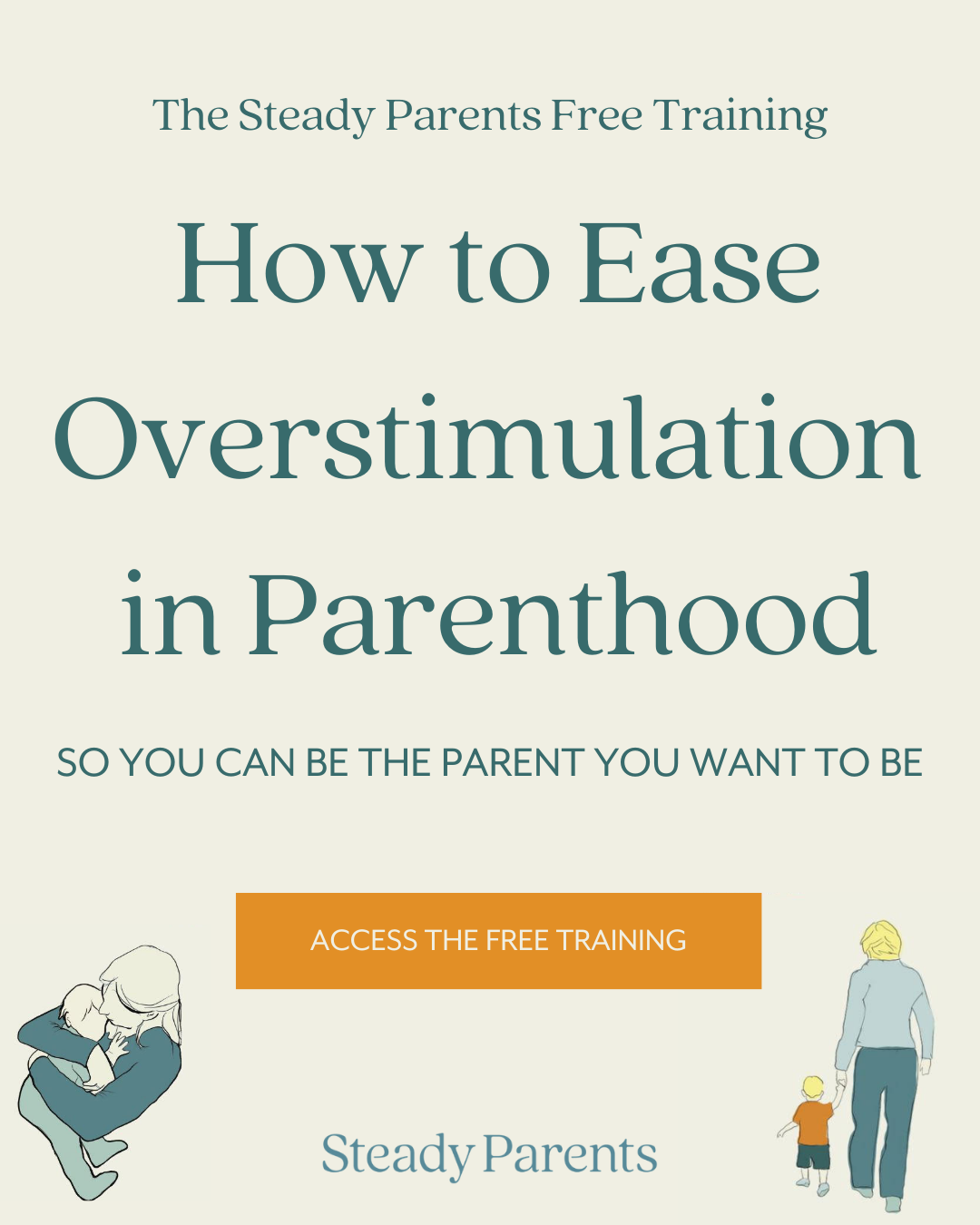Parenting Mantra: 3 Words Every Overstimulated Mom or Dad Needs to Hear
“It makes sense.”
The next time you find yourself angry and overstimulated, I want you to remember this one thing. It makes sense.
Now, I know what you're going to say..
No, it does not make sense that I got that angry because my son wanted the blue cup instead of the red cup…
or because I stepped on a pile of sand from the playground…
or because my husband said something to me in a very slightly off tone…
it's not a big deal and it doesn’t make sense that I reacted like that.
But hear me out.
Yes it does. You are doing so many things. You are working so hard. Your nervous system is working so hard and it can only handle so much.
What is Sensory Overload?
Sensory input is cumulative.
What does that mean?
It means that every experience of sensory input that you get, both calming and alerting, gets stored in your nervous system.
If you are someone who is neurodivergent or is already sensitive to sensory stimulation, the accumulation of sensory input into our nervous system without a break can lead to overload and shutdown (GriffinOT).
As a parent, you are constantly inundated with alerting input (think random loud shrieks, toys banging, TV blasting, babies crying, sticky countertops, the A/C blasting, the microwave beeping, the dishwasher running…), and you don’t have as many opportunities for calming input (think quiet or nature sounds, gentle walks, active exercise, or deep pressure hugs).
The sensory stimulation you experienced an hour ago, or this morning, or even earlier in the week, might be contributing to your sensory overload right now.
So yes, that last straw really was the last straw.
It makes sense that you may have reacted the way that you did.
“Self-compassion is an essential ingredient for self-regulation. ”
How to Get Out of the Shame Spiral
When we’re overstimulated and feeling out-of-control, it’s easy to get caught up in a shame spiral. But the truth is, that shame sends us further into dysregulation.
“I should be able to handle this better.”
“I must be such a bad parent if I can’t handle my children’s laughter.”
“What does it say about me that I feel rage when my daughter strokes my arm?”
“If I don’t stay calm in this moment, my child will never learn to regulate and it will all be my fault because I didn’t stay calm.”
Do these thoughts feel familiar?
I know I have had all of these thoughts throughout my parenting journey.
These are self-criticizing thoughts. They come from a place of fear, a place of unacceptance, a place of dysregulation.
But self-criticism actually sends us further down the dysregulation spiral. It reduces our ability to see our needs in the moment and see the struggle we are in. It is a literal attack on ourselves.
Our amygdala gets fired up with these thoughts, alerting us to danger, and we become more dysregulated, and then more self-critical.
This is where self-compassion comes into play.
Self-compassion is an essential ingredient for self-regulation.
We need to both recognize the struggle we are in, and show kindness to ourselves, in a difficult moment.
Self-compassion allows us to find safety and acceptance in a challenging situation. Rather than feeling worried or fearful in these moments, we feel content and secure.
When we approach our dysregulation with self-compassion, we actually create a safe space for ourselves to come out of that dysregulation. Rather than feeling worried or fearful in these moments, we feel content, secure, and valued.
Because even though sensory dysregulation is normal in parenthood, staying stuck in it doesn’t have to be.
When you’re feeling overwhelmed, overstimulated, and touched-out, hit play on this free audio and I’ll be there to help.
This audio guide is straight from the SOS Vault in my signature program, Sensing Your Needs in Parenthood.
Inside, you’ll receive more audio-guided meditations like this one, along with all the information you need to understand your sensory needs and how to move through them, even when under the stress of parenting.
Conclusion
When we’re feeling overwhelmed, overstimulated, and touched-out as parents, it can be easy to get caught in a shame spiral. But understanding sensory input, and approaching these moments with self-compassion, can actually create a safe space for us to find the relief and regulation we need.
As we learn to recognize our needs and show ourselves kindness, we can be present for both ourselves and our children, not stuck in a constant cycle of shame and sensory overload.
So the next time you’re feeling that way, give yourself a break. “It makes sense.”
Create a space to give yourself permission to experience the emotions, and to move through them. That is the way to real and lasting change.
PIN THIS FOR LATER:








